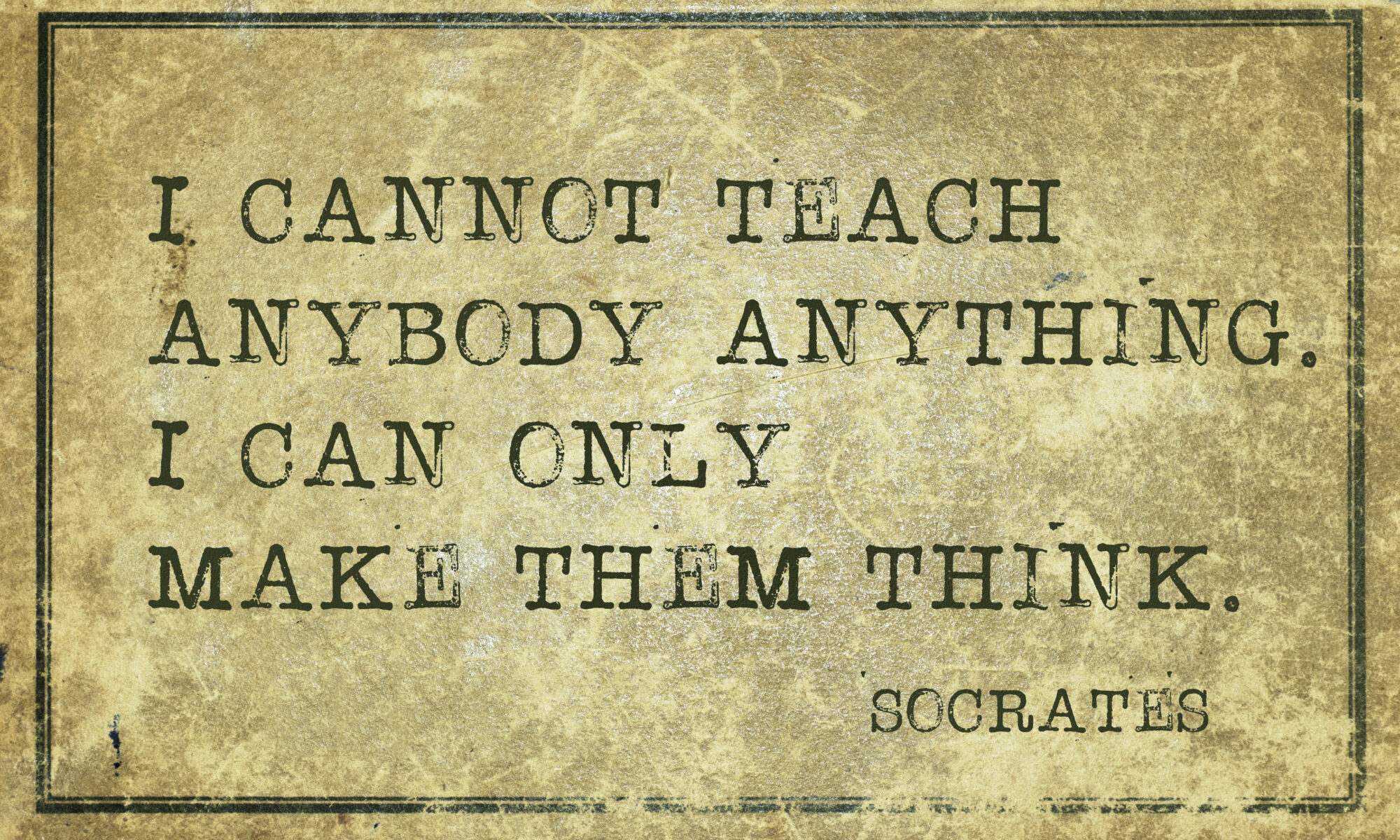In this article, Willem Visser, introduces the history of coaching from Socrates to a modern coaching approach.
Socrates, the Greece philosopher and mentor for many young people in Greece, was in fact the first coach in history.
Socrates saw oneself as a mental obstetrician: so helping people to understand, but as a coach one cannot take care for the understanding. In other words, according to Socrates: one can help a woman to bring a child into the world, but you cannot bring that child yourself into the world.
So a coach can help to perform, but the real performance can only be made by the performer oneself.
Socrates was very progressive by promoting that stimulating self-management by thinking is more important than instruction.
In business coaching one uses the so called Socratic system of coaching; it is coaching based on asking questions in order to stimulate to find yourself the right answer.
In business coaching there is also a variation of the Socratic system of coaching; it is called coaching by pulling comparative to coaching by pushing.
In history of sport coaching one can see that the definition “transporting someone from one point to another” was done almost literally. Only the coach was deciding and the sportsmen/women, only had to follow, without any personal contribution.
And I am always using the following terms:
- Flee. Those who are fleeing are never the winners
- Follow. The followers are seldom the winners
- Fight. And everyone knows that the fighters are the winners
Of course there are still coaches which are using a dictatorial style and there are still cultures and countries which are using this style of coaching.
In fact we may conclude that mostly dictatorial coaching is developing into a modern form of coaching; coaching that leads to self-management of the person who is coached.
In the beginning coaching was dictatorial and in some cultures and political systems it still exists.
Later coaching was developing and mainly the personal style of the coach was modifying.
Now the most modern style of coaching is helping to develop a sportsmen/women into self-management in order to perform by observing, listening, facilitating and advising.
Willem Visser
Executive coach, Strategic Adviser, International Lecturer 8th Dan Judo IJF
With gratitude to all my teachers, specialists, colleagues and especially all the judoka that I was allowed to guide and to coach.
Sources and inspiring professionals:
Van der Horst, Cobben, Abe, Saitoh, Yamashita, Uemura, Sugawara, Murata, Hosokawa, Komata, Takahashi, Nakamura, Kasuga, Kawashima, Kariya, Brousse, Besson, Rougé, Ruska, Geesink, de Cree, Barta, Vachun, Viser, Lascau, McConnell, Snijders, Sins, Hoogendijk, Boersma, Odinot, van Dijk, Klok, Landsberg, Covey, de Waal, DeCaluwe, Drucker, Franzen, Goldratt, Hammer, Kets de Vries, Kotler, Mastenbroek, Mintzberg, Peters, Porter, Quinn, ten Bos, Trompenaars, Vinke, Weggeman, Wissema and many others.


